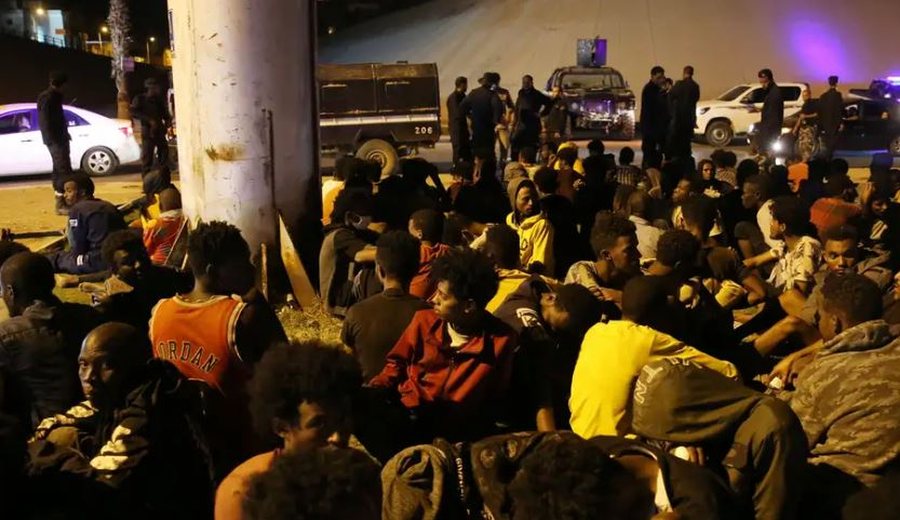
According to a UN report, around 122 million people worldwide are displaced due to wars and conflicts. The situation in Sudan is particularly dire, but also in Ukraine and Afghanistan.
More and more people are fleeing their homes due to war, violence and persecution. At the same time, funds to help them are becoming increasingly scarce. That is the grim assessment of a new report from the UN High Commissioner for Refugees (UNHCR). At the end of April, there were more than 122 million women, men and children forcibly displaced around the world - two million more than last year.
The report says the number of displaced people has doubled in the past ten years. Meanwhile, the financial resources available to UNHCR are at the same level as in 2015, according to Filippo Grandi, the UN High Commissioner for Refugees. "We are experiencing a dramatic decline in resources," he says. This is partly due to the US freezing its contributions, but also because other countries are contributing less. "So we have less money and many more people to help in very complex situations," Grandi points out.
War displaces 14 million people in Sudan
One of the worst-hit countries is Sudan. The brutal war has forced nearly 14 million people to flee. More than a million refugees - mostly from neighboring Sudan - are in Ethiopia. But for the Sudanese who have fled to Ethiopia, the UNHCR now has only half the funding it had in 2024. UNHCR chief Grandi explains the situation. "For example, we had to stop all assistance to women who were raped in these wars - because the program was mainly funded by the US. We have malnourished children whose treatment in hospitals and refugee camps must be reduced to a minimum so that space can be quickly created for even more malnourished children who need extreme care."
Difficult situation also in Afghanistan and Ukraine
According to the latest UNHCR report, Sudan is the country with the worst refugee crisis in the world. Other hot spots include Afghanistan, with more than ten million displaced people, and Ukraine, with nearly nine million displaced people. The UNHCR also includes people who are internally displaced in the report. They represent the majority: The number of internally displaced people has increased by more than six million, according to the report. The vast majority of refugees - as the new report confirms once again - do not live in wealthy regions like Europe, but in poor countries like Ethiopia, which hosts 73 percent of the world's refugees.
"But in rich countries there is always the perception that everyone wants to go there - that an uncontrollable invasion of refugees is coming. This perception is carefully cultivated by certain people in the political establishment who use it to win elections," says Filippo Grandi.
According to a recent analysis by Oxfam, the G7 countries, the most important industrialized Western countries, are expected to cut development aid spending by 28 percent by 2026. Beyond the moral aspect, these political decisions are also "very short-sighted" in their own national interest, says UN High Commissioner for Refugees Grandi. Because the lack of aid will ultimately push people to flee to Europe.
"Europe is surrounded by a belt of countries in crisis," Grandi said. "If we now have to halve humanitarian aid, as is happening, this will lead to migration movements. 250,000 Sudanese are currently in Libya because they can no longer receive aid in Sudan or in neighboring countries. And we all know: going to Libya means moving forward - towards Europe."/ DW (A2 Televizion)











